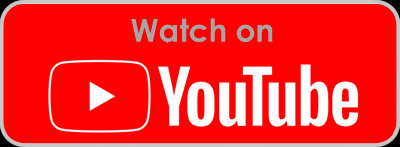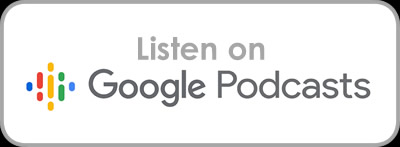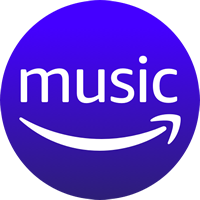Have you been using Google Ads in the same way for several years? Maybe you’re not even actively using Google Ads because it seems just a little bit too complicated at first glance. Perhaps you want to use Google Ads in 2021, but you’re not quite sure where to start.
My guest today has been running Google Ads campaigns for brands around the globe for the past 15 years. He’s a speaker, an investor, a mountain biker, the co-author of the world’s best-selling book on Google Ads ‘The Ultimate Guide to Google Ads’ – plus the Founder of one of Australia’s largest independent Google agencies, ‘WebSavvy’ – Mike Rhodes.
Key questions covered in this episode:
I started using AdWords in about 2004/2005, using it for arbitrage, driving traffic to AdSense pages, but Google Ads has changed a little since then?
What would you say to a brand who have been running similar campaigns for the past couple of years – what do they need to change now?
What are some of the best opportunities available now?
Video ads?
Landing pages?
Retargeting laws?
Integrate with other digital marketing channels?
Audio recording:
Full transcript:
David Bain 0:00
Digital Marketing Radio Episode 237: How to use Google Ads in 2021
Bot 0:05
Digital Marketing Radio with David Bain.
David Bain 0:11
Hi, I’m David Bain. And this is Digital Marketing Radio, the show for enhanced agency and entrepreneurial marketers who want to stay on top of the latest tools, tactics and trends shared by today’s modern marketing masters. Have you been using Google ads in the same way for several years? Maybe you’re not even actively using Google ads, because it just seems a little bit too complicated at first glance, perhaps you want to use Google ads in 2021, but you’re not quite sure where to start. My guest today has been running Google Ads campaigns for brands around the globe for the past 15 years. He’s a speaker and investor mountain biker and the co author of the world’s best selling book and Google ads, the Ultimate Guide to Google ads, plus the founder of one of Australia’s largest independent Google agency’s website at Welcome to DMR. Mike Rhodes.
Mike Rhodes 0:59
David,
pleasure to be here. Thanks for having me on. Great to have you here, Mike.
David Bain 1:03
Well, you can find Mike over at web savvy.com.au. Mike, I was sharing in the previous episode, Episode 236. With Theresa Heath wearing that I started using AdWords as it was called back then in about 2004 2005. And I was using it for arbitrage driving traffic to AdSense pages. Google Ads has changed a little bit since then, isn’t it?
Mike Rhodes 1:27
Since then, yeah, there’s not many five cent clicks to be had anymore.
David Bain 1:32
Folks, I think I remember one say that at the very beginning, but but it was, it was it was kept it was five cents, there was loads of keywords or five cents. And you have to maintain
Mike Rhodes 1:40
that click through rate in order to keep your keywords alive before quality score existed and, and overdue, or you can see your competitors bids and over to your back in the day. And you could do all that bid jamming stuff, you know, just like bidding just a cent more than they were to make them pay the full amount of
David Bain 1:59
days. I mean, I made a bit of money out of that. But looking back, I could have done so much more if I just carried on. So obviously things have changed an awful lot since then. We’ve what would you say for instance, nowadays to a brand who’ve been running similar campaigns for the last couple of years, and you haven’t really amended much about what they do what’s what’s changed over the last couple of years of Google ads, and in to help a brand like that improve what they’re doing. Yeah,
Mike Rhodes 2:27
the biggest change is just being the increase in the ability of Google’s AI. So you know, Sundar stood on stage three, four years ago, and said, We are an AI first company, they are one of the best AI companies in the world. But at the time, he said that the AI really wasn’t that good. I often sort of, if I’m trying to describe Google, in a very possibly cynical way, engineering comes up with some great ideas. And then they need data to feed those idea to see if those ideas are any good. So Oh, we’ve got a bunch of sales guys, let’s incentivize them, to make sure that this new thing gets rolled out on enough accounts that we gather some data and we see if it’s a good idea, and we learn how to tweak it. And some of those ideas are terrible, and some are great. And so they’ve been pushing pretty hard for the last few years, use our smart suite of tools. And the joke used to be whenever you hear smart inside of Google insert the words not so in front of that. So not so smart display, not so smart bidding, because it really was pretty dire back in the day, but these days that has changed. There’s a stat that Google like to quote, it actually comes from Sam oatlands company open AI, where AI is doubling in power roughly every four months, are you doubling in power every four months is probably how they finished that sentence. Doesn’t mean it’s getting twice as good every four months, but it is doubling in power it is the the AI is getting better. And of course, they have perfect data from where they said they know, every ad auction every keyword, every bit every message every ad, every site link, going back 20 years, they’ve got a decent amount of data on their side. And they know an awful lot about us, the people clicking the people searching, so they are getting very, very good. And the biggest difference I would say over the last couple of years, is really starting to lean in to the machine learning in to the AI and making full use of that. That is probably gonna change I’m sure we’ll talk a bit later about the changes that are coming in terms of tracking and measurement and the little spat between apple and the ad platforms. That’s happening right now. That’s gonna change things for sure. But right now, Google and Facebook can pretty much I always refer to it as shoot the eyes out of the market. They just know who is going to convert maybe before those people know themselves. So they know how Who to show ads to, they’re getting incredibly good at predicting who is likely to click, and then convert after clicking those ads. So they’re showing ads to people that are searching for what seems like a pretty random term terms that you would never actually bid on as an advertiser. Because you wouldn’t want to show ads to everybody that was bidding for that term. But the machine is smart enough to to not show ads most of the time, and then we’ll show an ad to her right now. And, and to him right now and to that guy over there, because it just knows who is likely to convert. It’s got very, very good at that.
David Bain 5:37
Ai, doubling every four months. That just blows my mind. I haven’t heard that stat before. I’m aware of Moore’s Law, obviously, doubling every couple of years, the number of transistors and that seems like an exponential. But AI, growing at that rate is just just phenomenal. What does that really mean? bottom line for advertisers? Do keywords actually matter anymore when setting up a campaign initially?
Mike Rhodes 6:02
Yes, they do. And I think you know that there is chatter that your keywords may go away. I don’t think keywords will go away. It’s a strategic advantage that Google have Facebook deals in audiences, Google have added more and more audiences over the past five or six years, they saw Facebook taking away more market share from them, but they have this wonderful thing called the keyword. There is a huge amount of intent delivered based on what you and I type into Google, you can discern how likely somebody is to to purchase to convert to become a lead based on what they type. But now combine that keyword that search term with all of the other signals that Google is currently able to look at. Which searches have they done previously? Which websites? Have they just been on? How did they behave on those websites? What other apps do they have on their mobile phone? What’s the weather where they are, they even tested whether the phase of the moon had an impact it didn’t. But they tested it. So God knows what else they’ve tested. And the AI is able to look at all of these different signals, it considers something like 70 million signals in the blink of an eye. When you do that search to try and understand how likely you are to search. No human can keep up with that. Our bidding is basically a huge math problem. Good friend of mine who used to work at Google who has a company called optimizer guy called Fred valets, one of the smartest people you’re ever likely to meet. He says there’s no such thing as a bad keyword. There’s just a bad bid. So as long as you don’t overspend in order to show your ad to someone, you can be profitable, you might not get to show your ad very often if you bid five cents, like we did back in the day. But maybe that’s the right bid for you for that keyword. So yeah, keywords are here to stay. But you got to combine that these days with different types of audiences. And there are many different types of audiences that you can choose from, we don’t need to go into the details. But understanding your first party data, understanding what the machine knows about people based on their searching and browsing history, understanding how someone’s been using YouTube, you can use all of that data to work out what you should be paying to get in front of someone, and make sure it’s profitable for you.
David Bain 8:25
Okay, so would you say that it’s fair to say that keywords are the starting point where it gives you the opportunity to actually to select where, who you go in front of to begin with, and then you give the machines are an opportunity to learn. And then the machines can augment or perhaps even alter your campaign based upon what they learn?
Mike Rhodes 8:45
Pretty much Google’s definition of what a keyword means has been changing over the years, you know, we used to have a lot of control. And when we said to the machine, we’ll call it only show my ad to people searching for exactly this term, then it would comply with that, these days, and they have been broadening the definition of that over the years. These days, it’s pretty broad, that somebody’s searching for something that vaguely means kind of what you said by that keyword. But based on what you’ve told us, your goal is and based on everything we know about that person. Yeah, okay, what they’re searching for right now kind of almost has no relation to your keyword. But we can see it’s relevant to your website, we can see that this person is likely to convert at a price that complies with what you said is what you need. It’s the goal that you gave the machine. So keywords are still very useful. It’s a very useful starting off point, as you say, for guiding the machine in the direction that we want it to take. But then the machine has a fair amount of latitude to kind of do what it wants. After that it won’t then come back and also your campaign and change the keywords in your account. At least not if you set it up properly. But it does mean these days that the link between what somebody typed in and the keyword in your account is a lot more fuzzy than it used to be.
David Bain 10:10
So can we talk a little bit about what’s ad type? And what funnel landing pages tend to work best nowadays? Are you seeing a trend towards video, for example, and what kind of call to action, call to actions tend to be more effective, etc.
Mike Rhodes 10:26
So there are two huge parts of Google right, we have the Search Network and the display network. On the search side, the ad types, the type of ads you’re going to see, as a consumer, there’s little text ads, search ads, and then there’s little square images of products with the price and a little description underneath. Those are shopping ads, I can’t tell you, the number of retailers I bump into, that might be spending 100 grand a month on Facebook, but they’ve never tried Google Shopping. And if you’re listening to this, watching this, I would urge you as a retailer, please give Google Shopping a try. Google loves them because consumers love them, consumers click them more than text ads, which means Google makes more money, which means Google wants to show these ads in more places. But that also means they’re good for us as advertisers on the other side, and those are going to go straight to the product. You mentioned landing pages. So if you click on that, add the reason they work so well. You’ve got the context, you’ve seen a picture of the product you’re searching for, you’ve seen the price that that retailer has that product for. And they’re going to take you obviously directly to that product page on the website. So your conversion rates likely to be higher, you’ve got that context, you’re taken to the most relevant page. On we go. Now the other side, the Display Network, so that includes Google properties, like YouTube and Gmail, huge websites like Oprah and CNN and ESPN, all the way down to tiny little websites that you and I have never heard of, or more never go to, but Google knows where they are. So the owners of those websites have basically said, We’d like to make a little bit of money from the traffic coming to our site, Google throws some ads on our site, you figure it out, we’ll put a piece of code there, and you decide what ad to put in that spot on our page. So when somebody lands on the page, in that blink of an eye, it’s looking at those 70 million signals and working out which ad to show to that person, is it the ad with that product of the site you adjust on but haven’t bought yet? Is it the site from three weeks ago that wants to show an ad to you? Or is it a completely new site that’s doing some acquisition? One of the best landing pages that I’m seeing being used right now. landing pages that uses quizzes, or even better something called a decision tree, which is really a quiz on steroids. So it’s a very minimal commitment, very low friction, it starts with a nice, easy question. But the the difference between a decision tree and a quiz is that the questions that you’re going to get asked, depend on your answers to previous questions. So picture the root of a tree. And depending on how you answer questions, you’re going to get bounced all the way down to this corner. Or go mate here in Sydney, who’s built this phenomenal marketing tool called lead hook calm, big shout out to Nick, it is an amazing piece of kit. You can show a dynamically built sales page or dynamically create a PDF on the fly based on how somebody has answered the previous 10 questions or three questions or 30 questions and deliver to them exactly what they’re after. With that tailored call to action based on their language based on exactly what they were looking for. I think there’s only really two rules in online. Steve Krug back in 2008. Don’t make me think wonderful book changed the way I thought about online back then. But make it easy and make it relevant. And that tool makes that landing page or at least the sales page that you see at the end of these questions. Thanks. It’s so irrelevant that you can’t not carry on and go the next little step and swap your email address for something of value. So for those sort of further up the funnel, ads, like display ads, banner ads, YouTube ads, yes, YouTube ads are fabulous, I would urge more people to try those, it’s a bit more work to create a video to build that video, it’s obviously a little more expensive than just creating a banner ad on Canva. But your competitors aren’t going to do it because it’s too hard. So there’s a huge opportunity there to build that better funnel to show ads where your competitors aren’t showing it and then use a tool like lead hook to deliver massively relevant value to your prospects.
David Bain 14:37
So talking about creating bespoke experiences something that’s been quite useful to help deliver that over the last few years is retargeting is being able to track people across your various web properties to see what they’ve done and deliver relevant ads based upon the actions that they’ve taken. However, it seems like law is catching up with that. And it’s, it may change over the next few years we had Apple making a decision about Facebook recently, which I guess impacted things like cookies, what what are your general thoughts on where retargeting is heading and what we will be able to do over the next couple of years in terms of delivering bespoke ads?
Mike Rhodes 15:26
It’s a very good question. And there are a lot of unknowns there right now. So yes, Apple genius, strategic move. Tim Cook. We are the privacy company back in 2017. Google and Facebook are obviously now chasing along behind the going Oh, yes, yes, yes. privacy. Absolutely. Yeah, huge, very important to us. But we just want to make sure we do privacy in a way that we can still make billions of dollars from ads, Apple don’t need to worry about that. Some apps, they have some ads in their app store, but really nothing to worry about. So Google, then in 2019, created this thing called the privacy sandbox. And they said, Look, come one come all tell us how we might be able to continue to track people, but in a privacy friendly way. And there’s two really important parts of this, there’s targeting and then there’s measurement. So we want to make sure that we try and show ads to the right people, because the more relevant again, an ad is, and Google believe this to their core, that an ad can be information, the more relevant to that is, the more useful it is to people. I know for one, I never want to see an ad for an HP laptop ever again. But the ad for next month’s iPad Pro that might be coming out. Absolutely, I will probably buy one of those when I see that. So ads need to be relevant. But then we also need to measure the impact of our marketing and marketers have become very lazy, over the past few years, you know, tweak a few numbers in a spreadsheet and believe what marketers, we’re going to see a return to actually having to be marketers to think about the people on the other side of the screen on the other side of the spreadsheet, and getting the messaging, right and delivering real value rather than just chucking some targeting at the machine and saying, well go and then season the pixel, you figure it out Google or Facebook, you figure out who’s going to buy my stuff, because you’ve got all the data. So it is going to change. Google have recommended some things. They’ve all got silly names, like turtle, dog, and fledge. And that basically says that we think we’ve got a workaround, we’re not going to use cookies anymore. And we’re not going to try and recreate what cookies did, because they have to be seen as the privacy company. But they will find a way to I am sure to continue to show those highly targeted as as you say, I don’t think it will be quite as laser targeted as it is. Now it’s not going to be targeted to the individual, it’s going to be targeted to a small group of people something called a cohort. So that another of the silly name things is fluc FLC federated learning of cohorts, which means basically the Federated bit means the machine learning and the smarts happens at the edge, it happens on your device. And the device only sends back a little bit of data to HQ in Mountain View. It doesn’t tell Mountain View everything about what you’re doing on your device. And you are instead of being tracked as an individual, you’re attracted as a member of a small ish cohort of people that are a bit like you. So remarketing will probably get a bit less powerful. But I’m pretty sure that Google will find a way to make remarketing continue into the future.
David Bain 18:34
So do you think this means that in the future that big ad networks will not give website managers tracking scripts to instal on their websites? And that there will be another way to track what users do that doesn’t rely on the individual websites doing the tracking themselves?
Mike Rhodes 18:53
I think Yes. Is the short answer that question, yes, we will see the end of third party cookies will we see the end of those little bits of JavaScript, server side tracking, which is something I’m having to learn a lot about at the moment is going to become a bigger and big thing. storing your own data and working on gathering more first party data and using your first party data better? What information do you know about your prospects? How are you using that? How are you collecting that? How can you encourage more people to give you their details and build that valuable data? Because we can’t be lazy and rely on the networks to figure out everything about all of our prospects and to continue to shoot the eye out of the market and say oh, yep, show an ad to her and to him but not those people in between. That is definitely going to change. But yeah, I think Facebook’s going to be hard to hit this whole thing with Apple seems almost custom designed to go after Facebook. already receiving reports saying that the reported conversions from your Facebook ads may drop by 60 65% Facebook have this Wonderful lineup, just because they’re not reported doesn’t mean they didn’t happen, which basically means just trust us and keep spending. But people want people, right, if you CPI goes from 100 to 300 bucks, you’re gonna start pulling some money and investing elsewhere, you won’t want to just trust that those conversions are still there, Google have a bigger advantage. You know, they have a lot of properties, they can gather a lot of their own data. They own Android and Chrome and Google Analytics and YouTube and Gmail, like and search. So they have a bigger advantage, I think over Facebook, but yeah, there’s a lot of unknowns right now Apple, a really keeping stone there. They have their big announcement in August of last year. And they haven’t really said a lot since. Basically, I would assume that the worst case scenario you can think of, is probably pretty close to what Apple are planning, it’s meant to be rolling out in spring of this year, could be tomorrow, could be a few weeks away from now, we just don’t know there are a lot of unknowns there right now.
David Bain 21:03
So let’s segue to part two of our discussion. So it’s time for my thoughts in the state of digital marketing today. So starting off with SECRET
Bot 21:09
SOFTWARE. So
David Bain 21:10
Mike Sherif, lesser-known martech tool is bringing you a lot of value at the moment and why that tools important for you.
Mike Rhodes 21:16
So I love this tool called descript. It will take a video, it’ll sit in the background, and when you finish the zoom call or a loom video, it will say, Hey, I noticed you’ve just done one of those. Would you like me to add that? Yes, please, off you go. And when you add a video into this tool, it will then transcribe the whole thing. And it will let you edit that video as if you’re editing a Word document. So instead of if you’ve ever used iMovie, or something, I haven’t used anything fancier than iMovie, I have to say that if you’ve ever used a tool like that, you’ve got this little squiggly line across the bottom of the screen, and you have to scrub backwards and forwards to try and find the right place to cut your video or market or whatever you’re supposed to do. With descript, you edit the video as if you’re editing the Word document. So you’ve got this beautiful transcription, which is pretty accurate, I have to say maybe not quite as good as otter.ai, which is another fabulous tool. But it’s pretty good. And then you can say, Oh, this bit of text here, I want to cut that bit out. Let me give you another use case, I went out to my group, I teach a few 100 agencies, how to do Google ads, and Facebook ads and all that sort of stuff, how to do that better. And we asked a few of them recently for some testimonials. So we got a whole bunch of videos in, we ran them through the script. And my marketing manager was able to just look at that transcript to three paragraphs and all that line there with Darren said that and where Laura said that, let’s grab that piece. And just literally by copying that line of text and pasting it into a new file in this script, was able to build a rough cut, show reel of all of these little snippets of transcriptions to then hand off to a video editor to tidy up and make perfect I’m sure they didn’t use the script for that last piece. But as a first 80% kind of tool, absolutely fabulous.
David Bain 23:04
It is an incredible piece of software, you can actually artificially create your own voice in there as well.
Mike Rhodes 23:10
Yes, using library technology. So if there’s a word that you want to change, you said Google AdWords instead of Google ads, you can delete AdWords, write ads, and it will write or essay ads in your voice over that piece of the video, phenomenal piece of kit.
David Bain 23:28
Well, moving on from something that you currently use to something you’re going to use that is NEXT ON THE LIST, what’s one marketing activity or tool that you haven’t tried yet, but you want to test soon.
Mike Rhodes 23:38
So somebody just told me a couple of days ago about this tool, it’s called search cheat.io. kind of similar
AJ Wilcox 23:45
in a way,
Mike Rhodes 23:45
so we’re still on sort of video and transcript. But so I have about 20 different courses on my sister company’s website agency savvy.com. And somebody was asking recently, it would be wonderful to be able to search through those videos. So our first thought was, yep, okay, we’ll run them all through descript. That’s gonna take a while there’s 500 plus videos there. We’ll run them through there. And then you’ll be able to search through these pages and pages and pages of text. And then somebody pointed out searching. So searching, you have a search bar, you search for a phrase, let’s say Google Display Network, and it will then not only tell you where in which video, that phrase is mentioned, you click on the button and it takes you directly to that point in that video and starts playing the video from 10 seconds earlier. So you get the context of what’s he saying leading up to this thing. There’s the thing I was searching for. And then I can choose to continue watching that video, or jump to the next search result. looks fantastic. A great use case that my marketing manager came up with this morning, actually. So I’m very excited to try this is to run that on unstructured data. So a lot of the videos that we create a fairly short there’s a title there’s a description that goes With that, you kind of have a fair idea of what’s in there. But the monthly q&a calls that we run, very unstructured, I don’t know what’s going to happen before we jump on the call and being able to search through the last, I don’t know, maybe three months, maybe six months would be useful. Being able to search through that, which we’ve always struggled with, that there’s a tonne of value for the people that jump on the call live. But then three weeks later, it’s sitting in the members area, not particularly useful. Now, I think it’s gonna get really, really useful by using searches to be able to search through and then go directly to the most relevant piece of content. Looking forward to playing with it.
David Bain 25:37
Sounds great. I haven’t heard of the tool before. I love hearing about tools that I haven’t heard of beforehand. So when I was searching for it, I was spelling it, is it search with a Y or is it search? Ie exactly.io? I absolutely. But I initially typed in search with an AI a.io. And it actually redirected to search, ie dot i o bots with an affiliate link. So someone’s bot name with an eye on the end of it redirected, which is quite fun. And I wonder how much they make through that possibly a reasonable night.
Mike Rhodes 26:13
doing pretty well out of that? Yeah, I
really lost it.
I’ve done that with a few domains of whatever it is search e.com.au as the tool, I haven’t done that yet. I’ll have to do that very quickly before this goes live, which is already live, dammit.
David Bain 26:32
Let’s move on to this or that route. So this is 10. quick questions. Just 2 rules here. Try not to think about the answer too much. And you’re only like to say the word both on one occasion. So use it. Are you ready? Okay, tick tock or Twitter. Facebook or LinkedIn,
Mike Rhodes 26:53
LinkedIn,
David Bain 26:54
YouTube or podcast, YouTube, traffic or leads.
Mike Rhodes 27:01
Leads
David Bain 27:02
paid search or SEO,
Mike Rhodes 27:05
paid search.
David Bain 27:07
ads or influencers? ads, Google ads or Facebook ads, Google ads, email marketing or chat marketing,
Mike Rhodes 27:17
email marketing,
David Bain 27:20
more tech stack or all in one platform?
Mike Rhodes 27:23
My tech stack
David Bain 27:25
one to one or scale?
Mike Rhodes 27:27
scale.
David Bain 27:32
Okay, that was still relatively easy for you there as well. Obviously, the Google Ads centric ones who was it was fairly predictable. We were gonna go I think the traffic or leads was the initial one that you had a bit of a struggle with. Was that because?
Mike Rhodes 27:48
Well, yeah, because traffic is what we do. But actually, it’s not Leeds is what we do. And really, it’s not its profit is what we do. So people say they want more traffic, but you don’t you don’t want more traffic, you want more quality traffic, which turns into leads. So I’m going to go with what further down the pipe. If you said profit, I want to jump straight for profit. But in that situation, I think leads is better than traffic.
David Bain 28:12
Okay, okay, great answer.
Mike Rhodes 28:14
Let’s move on to the $10,000 question.
David Bain 28:18
If I was to give you $10,000 and you had to spend over the next few days in a single thing to grow your business, what would you spend it on? And how would you measure success?
Mike Rhodes 28:27
Bloody Good question. I’d spend it on my team, I would say to them, what’s going to make you the happiest. And the measure of success would be how much the happiness increases. And we got about 20 people here in Melbourne, 500 bucks each spend it on whatever you want to spend it on, preferably vaguely related to your professional development, or something that’s going to make you happy related to work, I guess would be a caveat, I would probably try and get in it. We give everyone a learning fund every year of five grand, you have to spend four grand of that on professional development. But a grand of that is just whatever will help your wellness and well being so if that’s a yoga mat or a gym membership, if I if you’re gonna give me 10 grand, I guess I could drop the caveat and say just spend it on whatever is gonna make you happy. That’s that’s how I choose to spend that.
David Bain 29:17
And can you possibly draw the line between employee happiness and increase profitability?
Mike Rhodes 29:25
Well, I think so. I think those are directly related. I think if your team is happy and loves what they do, that shines through and then your clients love working with those team members, the relationship is stronger, which doesn’t immediately relate to more profitability. But happy clients. We all know how much it costs 5 billion times more to get a new client than to keep an existing one. I think keeping your clients happy. I did ponder there for a moment of what I said. Champagne out to all my clients. But I actually think looking after your team is more important if your team’s happy than your clients will be. I think it works that way from from the centre of the business out. So yeah, I’d look after my team. They’re bloody great. I love them.
David Bain 30:14
Super. Okay, well, to finish off, let’s change the focus to someone else who deserves it. So
that’s a MAGICAL MARKETER who’s
nothing coming marketer that you’d like to give a shout out to? What can we learn from them? And where can we find them?
Mike Rhodes 30:28
I really you gave me a bit of a hint about this question before we started recording. So I’ve had a little bit of a think about this prior. And there are a few names rattling through my head. But I’m going to go with a wonderful fellow called Chris Mercer who is based in Austin, Texas. He has a website called measurement marketing.io. You can tell him a bit of a data geek. It’s been a bit of a theme here hasn’t had for the past half an hour. But what you’re going to learn from Chris’s is how to how to track how to measure how to prove the ROI of your investment. It’s not a spend, it’s an investment in whether it’s Google ads or Facebook ads, or whatever you’re doing. Being able to use that data to improve your decision making I think only becomes more important. Yes, we might be dealing with less data. A few weeks from now it’s highly likely that we will be from this point on due to regulation, apples, little spat and everything else in between. But Chris is on top of this stuff. He is a brilliant, brilliant teacher, as well as being just a consummate professional and one of the best marketers I’ve ever met. So I believe his LinkedIn. Twitter has LinkedIn handle is Chris Mercer online. His website is measurement marketing.io and just a lovely bloke with fantastic hair.
David Bain 31:53
After check him out just for that superb stuff. You have been listening to Mike Rhodes from web savvy.com the AU who own today’s episode of Digital Marketing Radio assured some wonderful tips about Google ads to begin with. I like your tips about Google Shopping about server side tracking. Your SECRET SOFTWARE is descript your NEXT ON THE LIST was searching search ie.io and your mind MAGICAL MARKETER Chris Mercer from measurement marketing.io and everything you mentioned, of course, will be in the show notes at Digital Marketing Radio COMM And on the YouTube video over at the Digital Marketing Radio channel on YouTube. Mike, what is the best social platform for someone to follow you and say hi,
Mike Rhodes 32:34
I’m on Facebook, find me there or LinkedIn slash web savvy. Find me ask me a question. I love to grow businesses. Happy to help if I can do that. Absolutely.
David Bain 32:45
I be your host David Bain. You can also find me producing podcasts for B2B brands over at Casting cred.com if you want to watch the next episode live subscribe on the YouTube channel and if you’re not already listening to the show on whatever podcast platform is your favourite Apple podcast Spotify Amazon, please subscribe please tell a friend is good to share. Until we meet again Stay Hungry stay foolish and stay subscribed. Aloha
Bot 33:12
radio.com Digital Marketing radio.com
Digital Marketing Radio, Digital Marketing Radio, Digital Marketing Radio
















